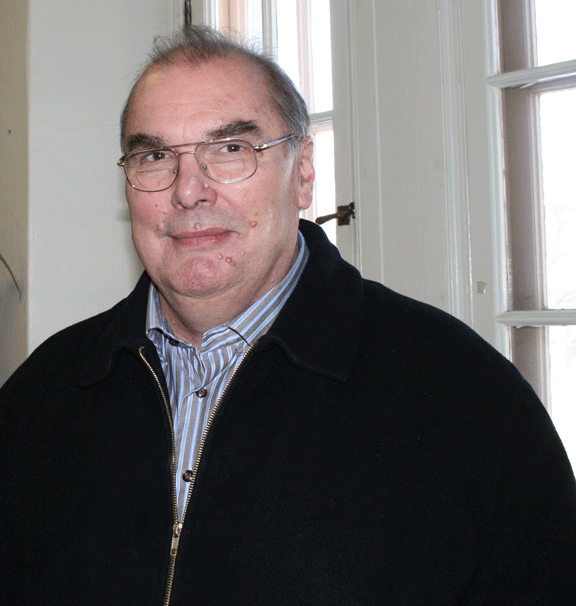Physical therapy director brings passion for research
The newly appointed director of the School of Physical Therapy is excited about the research potential both within the school and with other partners at the U of S and beyond.
By Lana Haight
"Teaching flows from research," said Steve Milosavljevic, who began a five-year term as director on Jan. 28. "Not everything that is taught can be fully justified by research, but everything that is taught that can't be justified by research should generate the questions for researchers to investigate. They are intricately linked and they cannot be divorced."
Milosavljevic graduated with a BAppSc (physio) from Curtin University in Perth, Austrialia, in 1975, and worked for several years as a physiotherapist before returning to school. He completed a postgraduate diploma in manipulative therapy in 1985 and graduated from the University of Otago in New Zealand with an MPhty (manips) in 1998. Milosavljevic then taught at the university and worked part-time as a clinician. He resumed his studies at the University of Otago, completing a PhD in 2004.
Milosavljevic developed his love for research as a graduate student. It's a passion that grew during his time as associate dean of research and post-graduate students at the School of Physiotherapy at the University of Otago.
"We were a developing school of physiotherapy at Otago with a small number of research-active staff. I was responsible for helping to recruit 23 doctoral students and driving the research program."
Since 2004, he has supervised 11 doctoral students, been awarded $2.2 million in grants and published 68 journal articles and peer-reviewed manuscripts.
"The strategy of applying for grants, getting strategic research funds and having students doing projects that are of interest to the health-funding agencies puts you in pretty good stead and that helped drive my career."
Some of Milosavljevic's research has explored occupational health issues of farmers in New Zealand and he's eager to work with other scientists at the University of Saskatchewan to learn more about the issues here. He's particularly interested in the management of back pain and the occupational exposure to whole body vibrations, common for farmers who sit for hours in tractors and other agricultural machinery.
Milosavljevic hopes to expand research collaboration to involve scientists from universities beyond the U of S, capitalizing on his ties to the University of Otago and a half-dozen other institutions around the world.
And the Australian native hasn't been deterred by the Saskatchewan winter; he embraced the blustery weather head on.
"When I first came here and saw all that snow and ice, I thought there would be no one driving around. But that wasn't the case. So within a day, I bought a car, put winter tires on and drove on the wrong side of the road. I didn't see any white lines on the road and wondered where the little cars go. Then I decided to stick behind the car in front of me."
Milosavljevic has always had a soft spot for Canada, in part because his parents almost emigrated here after World War II. His father, who served in the Yugoslav army, was taken prisoner and held captive in Germany. After the war, he met his wife, a German citizen. They were displaced persons for two years before being accepted by Australia and Canada. The couple chose Australia because Canada required that Milosavljevic's father live here for two years before his wife could emigrate.
Milosavljevic and his wife Marion have two adult children, Kate and Daniel. Both are studying at post-graduate levels, one in Ireland and the other in New Zealand.
Lana Haight is a Saskatoon freelance writer.

